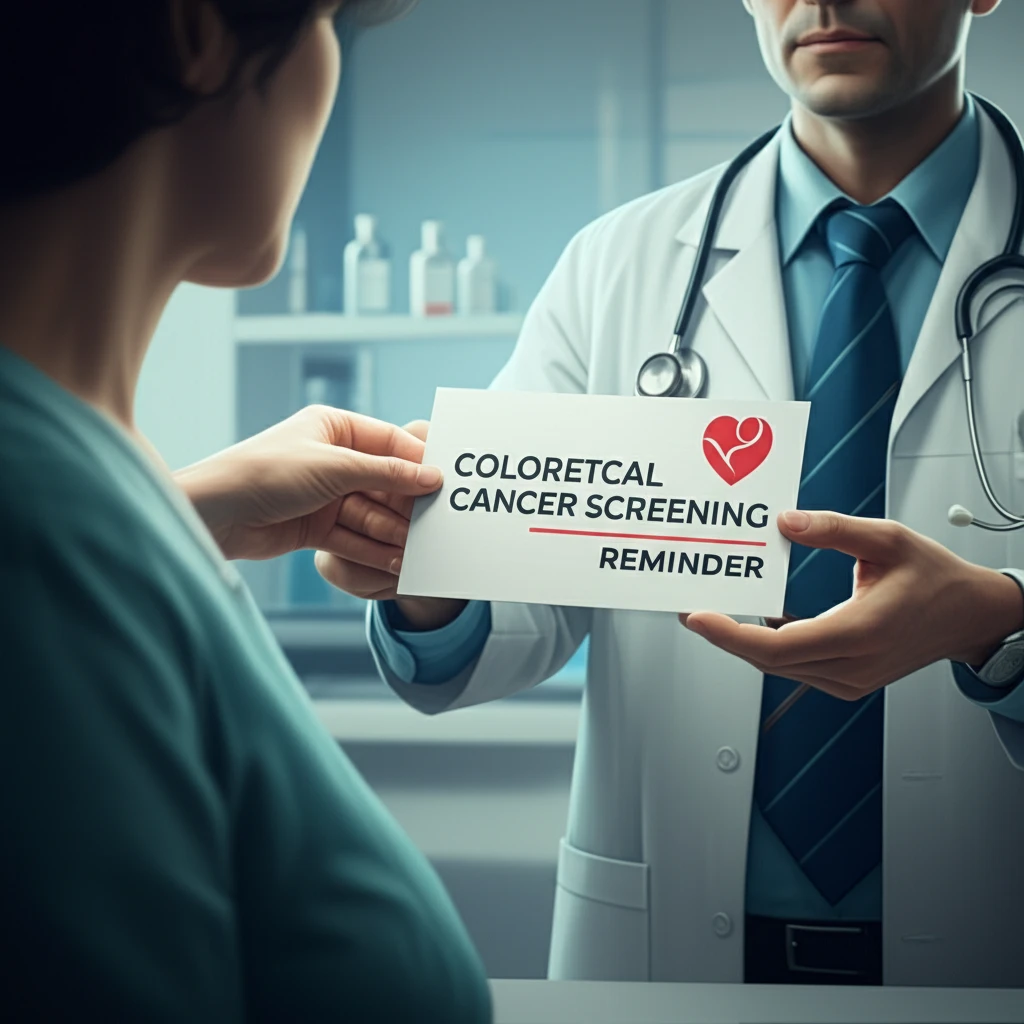
Could a Simple Reminder Boost Colorectal Cancer Screening Rates?
"New research explores the impact of physician notifications on patient participation in crucial cancer screenings."
Colorectal cancer (CRC) is a leading cause of cancer-related deaths worldwide. Early detection through screening, such as the fecal immunochemical test (FIT), is crucial for improving patient outcomes. However, adherence to recommended screening guidelines remains a significant challenge.
A recent study published in a leading medical journal investigated the effectiveness of physician notification in increasing patient participation in CRC screening. The study focused on whether informing general practitioners (GPs) about patients who were not up-to-date with their screening could motivate them to encourage their patients to get tested.
This research is particularly relevant in the context of public health efforts aimed at promoting preventive care and reducing the burden of CRC. By understanding the impact of simple interventions like physician reminders, healthcare systems can develop more effective strategies to improve screening rates and ultimately save lives.
The Power of the Reminder: How Doctor Notifications Impact Screening Rates

The study, a cluster-randomized trial, was conducted on the west coast of France, involving 801 general practices. These practices were divided into three groups to test different approaches to encourage CRC screening among patients aged 50-74 years who were not current on their screenings.
- Patient-Specific Reminders Group: GPs in this group received a list of their patients who had not undergone CRC screening, allowing for targeted, personalized reminders.
- Generic Reminders Group: GPs received a letter describing region-specific CRC screening adherence rates, providing a general awareness message.
- Usual Care Group: GPs in this group did not receive any reminders, serving as a control group.
Simple Steps, Significant Impact: Boosting Screening Rates for a Healthier Future
This study underscores the potential of simple, targeted interventions to improve CRC screening rates. By providing GPs with patient-specific reminders, healthcare systems can leverage the trusted doctor-patient relationship to encourage greater participation in preventive care. Further research is needed to explore the long-term impact of such interventions and to identify the most effective strategies for implementing them in diverse healthcare settings.
